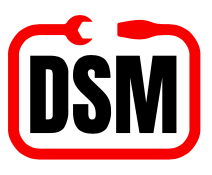
DSM Online Support
Support Master
Welcome to DSM Online
How can I help you today
How can we assist you? please let us know the support you need from DSM Online

In the expansive landscape of electronics and embedded systems, communication is key. Whether you're debugging a microcontroller, uploading code to an ESP32, or interacting with a sensor that speaks in serial, you often need a reliable way to bridge the gap between your computer's USB port and the TTL (Transistor-Transistor Logic) serial signals of your embedded device. This is precisely where the FT232RL FTDI USB to TTL 3.3V 5V Serial Adapter Module steps in as an indispensable tool for hobbyists, developers, and engineers alike.
This blog post will explore the vital role of this compact yet powerful module, highlighting its features, common applications, and why the genuine FT232RL FTDI chip makes all the difference for seamless and reliable serial communication.
Understanding the Gateway: What is a USB to TTL Serial Adapter?
At its core, a USB to TTL serial adapter acts as a translator. Your computer communicates via USB, a complex, high-speed protocol. Many microcontrollers, sensors, and other embedded devices, however, communicate using simpler, lower-level TTL serial signals (typically UART – Universal Asynchronous Receiver-Transmitter). This adapter converts the USB signals from your computer into the appropriate TTL serial signals (RX, TX, VCC, GND) that your embedded device understands, and vice-versa.
The FT232RL FTDI USB to TTL 3.3V 5V Serial Adapter Module is particularly notable for two key features:
Why the FT232RL FTDI Module is Your Go-To Choice
While numerous USB to TTL adapters exist, the FT232RL FTDI based modules stand out for several compelling reasons:
Powering Your Projects: Common Applications
The applications for the FT232RL FTDI USB to TTL 3.3V 5V Serial Adapter Module are incredibly diverse and touch almost every aspect of embedded systems development:
Ensuring Quality: The Importance of a Genuine FTDI Chip
When purchasing an FT232RL FTDI USB to TTL 3.3V 5V Serial Adapter Module, it's critical to ensure you are getting a module with a genuine FT232RL chip. The market is unfortunately flooded with counterfeit FTDI chips or modules using generic USB-to-serial converters that mimic FTDI, but lack the driver stability and reliability. A genuine FTDI chip guarantees a hassle-free experience, consistent performance, and long-term compatibility with future driver updates. Always source your modules from reputable suppliers to avoid these pitfalls.
Conclusion: Your Essential Serial Companion
The FT232RL FTDI USB to TTL 3.3V 5V Serial Adapter Module is more than just a piece of hardware; it's a vital communication bridge that simplifies your embedded systems development. Its reliable FTDI chipset, voltage flexibility, and broad compatibility make it an indispensable tool for programming, debugging, and interacting with a vast array of electronic devices. Equip your workbench with this essential module, and unlock a world of seamless serial communication for all your innovative projects.